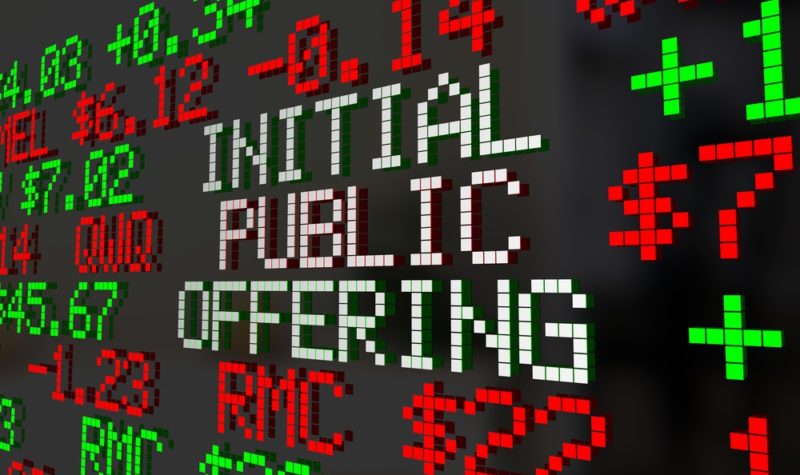Beware US IPO madness

If you really want to worry about how euphoric markets are, think about the US IPO market. Toppy or what? I want to know what the retail market is collectively smoking – and please, please can I have some?
It’s been truly extraordinary. DoorDash, a food delivery company that’s never made a penny of profit is worth $70bn? It exists in a no-barriers-to-entry, highly price competitive, and ultimate risk sector – where if Micky D makes a bad burger, they get the blame. It’s also a concept that’s shifting on the value curve. Money ain’t made on deliveries, but in the manufacture of meals: you probably aren’t getting your Kentucky Fried Rat from the Colonel, but from some Dark Kitchen on an industrial site. Costs are slashed, but they can still charge extra by slapping a posh restaurant’s name on a 50 pence burger from Iceland.
The Airbnb IPO was just completely hat-stand. This was a company IPO where analysts were struggling to justify a $40 dollar price last week, and it finally opened at $163. It’s a very, very mildly profitable company, but is it really worth more than the global hotel industry or a multiple of the package sector? As someone noted, it values each Airbnb property around $13k, so all any competitor needs to do is clone the software and marketing, then pay Airbnb owners $10k to switch to their new firm to become instant billionaires.
What’s driving all these extraordinary prices is a combination of multiple factors, a conjunction of hat stand market madness, plus a complete and utter suspension of disbelief by an incredulous market of retail marks – the greater fools. The big banks and funds will be delighted to take the IPO allocations and run.
Let me try to explain: every single day I come up with lots and lots of very clever ideas. My biggest failure has been failing to effectively monetise them. Every so often someone does monetise a clever idea and makes quintillions. But most clever ideas are not SMART ideas. Smart ideas are the ones that really change the world. Sometimes it takes a long time to discover a smart idea was actually just a clever one… usually accompanied by the sound of a bubble popping.
Ultimately, every investor wants to invest in something that is a monopoly and will reap monopoly profits. So, they buy into things like Standard Oil, Microsoft, Apple, and Facebook and pretenders like Tesla, Snowflake, Airbnb and the petfood delivery company that is now worth more than the land value of the Emperor’s Palace in Tokyo. Some are safe monopolies – like no one else can make an iPhone. Some are risk-monopolies where regulation to break oil giants, control social media and calls to break up Facebook or deter Amazon are tangible risks. The pretenders might have first mover advantage, but they are vulnerable to competition as they progress.
If you are Elon Musk you can make lots of noise about the company and extend the illusion it’s a monopoly by controlling the narrative – it’s not a car company, it’s an energy, self-driving, taxi monopoly. Eventually it bursts. (Credit where credit is due. Even though the spaceship crashed earlier this week, SpaceX is brilliant. It could have become a valid monopoly/duopoly in space launch if Musk hadn’t decided to use it to create his Starlink satellite internet monopoly – which will compete with every other provider of same.)
At the moment the market is being deluged by the money governments and central banks have injected in to stimulate recovery. Oh, you thought that money was being used to create jobs and companies? Wrong. All that free money is pushing up financial asset prices, making the rich richer. Everyone wants to be rich, so everyone (bear with me here) is investing in stocks – which pushes them yet higher confirming what these new investors believe… stocks can only go higher.
Remember Blain’s Market Mantra No. 1: The market has but one objective: to inflict the maximum amount of pain on the maximum number of participants.
I read that internet purchases increased by some 63% in the US over the course of the pandemic. Many stocks are rising on the basis that the pandemic has accelerated the transition to new tech, like internet shopping, and other tech. Or it could be these things happened because of the virus offering no alternative. When it’s done, we’re going to want to spend a Saturday in the shopping mall or high street or going to luxury hotels (rather than dodgy Airbnb where the owner is filming you in the shower… just saying. It happens.)
The Pandemic was a massive unpredictable shock. The markets have been fuelled by the massive predictable response. The next massive unpredictable shock is what happens when it all reopens and unwinds? Maybe not what you expect.
Comments (0)